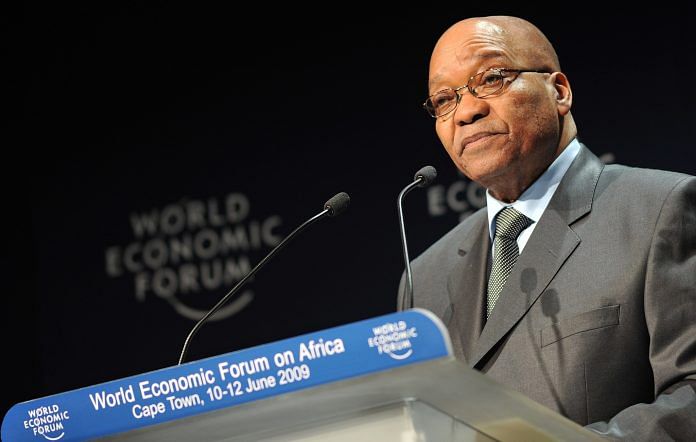Zuma’s slow exit
“No one expected Jacob Zuma to go gracefully. But as South Africa’s ever-defiant president drags out his final days in office, even his allies in the ruling party have had enough,” writes the Economist. The ruling party, ANC, asked Zuma to leave his post, but didn’t set any hard deadlines. Zuma has promised to leave in three to six months, but his obvious reluctance shows a potential fight on the cards.
“This is in character: shameless and stubborn, he has, over the years, appeared unfazed by damning court decisions against him as well as mass demonstrations demanding that he go.”
“Now Mr Zuma’s days are numbered. He is expected to respond to the “recall” by February 14th, though the party is vague as to what steps it would take should Mr Zuma ignore it. His term doesn’t actually end until 2019 and he is not bound to resign under South Africa’s constitution. The ultimate option to remove him would be through parliament. A vote of no confidence is scheduled for February 22nd.”
“Mr Zuma is clinging on because he has much to lose. Police investigators and prosecutors have suddenly opened investigations involving Mr Zuma’s friends. After leaving office he will face hefty legal bills related to a number of cases against him. He is facing further charges related to a 1999 arms deal, in which Mr Zuma is accused of 783 counts of corruption.”
The ANC wants Cyril Ramaphosa, the new leader of the party, to be Zuma’s replacement. Zuma’s preferred replacement is his ex-wife.
“In less than two months since becoming party head, Mr Ramaphosa has bolstered hopes of better times ahead in South Africa. Mr Zuma’s slow defenstration is a distraction from the work of government. At the end of his long and ignominious political career, Mr Zuma is again putting himself before his party and the people.”
What the US should learn from Raqqa
Raqqa has seen a lot of destruction: first when it was taken over by the Islamic State, and then when it was liberated by the United States. “What are the lessons of Raqqa?” asks David Ignatius in the Washington Post. “One is that the United States fulfilled its commitment of 2014 to “degrade and ultimately destroy” the Islamic State.”
“The conquest of its capital, however chilling, demonstrates the much-doubted quality of U.S. resolve. The U.S. military’s strategy here was “annihilation,” and it meant it. The next time, adversaries should be warier of picking a fight.”
“And finally, Raqqa is a warning to be careful about destroying the ruling order, anywhere, without knowing what will come next. Russian President Vladimir Putin keeps making this point — the United States was reckless to encourage the overthrow of authority in Syria, Iraq, Yemen and Libya without better planning for the “day after” — and he’s probably right. Too often, the vacuums have been filled by warlords, foreign mercenaries and death cults.”
“The United States and its allies nearly destroyed Raqqa to rescue it from a caliphate that governed by torture. It was a just war, but we should try hard to avoid having to fight one like it again,” writes Ignatius.
North Korea’s delegation has returned home
North Korea’s return from South Korea has left more questions unanswered, as the way forwards looks blurry. In a New York Times editorial, the most important question asked is: “Can the new opening between the two Koreas, begun amid the feel-good spirit of the Winter Games, be nudged and nurtured into serious dialogue over North Korea’s nuclear program?”
Contact between North and South Korea leaves the chance of dialogue open, and an open communication channel has more positive prospects than negative. The second outcome from the North’s participation in the Winter Olympics is that the United States is now ready to hold preliminary talks with the country, even as it continues to toughen sanctions.
“North Korea is a reprehensible regime and the world must never forget that. Still, leaders seeking solutions to major problems like North Korea’s nuclear program don’t have the luxury of picking their adversaries. Mr. Pence might have used the occasion to raise American concerns with Ms. Kim directly, although the South Koreans say she didn’t seem to want to speak with him, either.”
“All of which leaves unresolved the question of whether North Korea is exploiting South Korea’s desire for peace in order to secure economic or other benefits and break the alliance with the United States, or it wants to resolve the nuclear crisis and other disputed issues.”
The rest remains to be seen.



